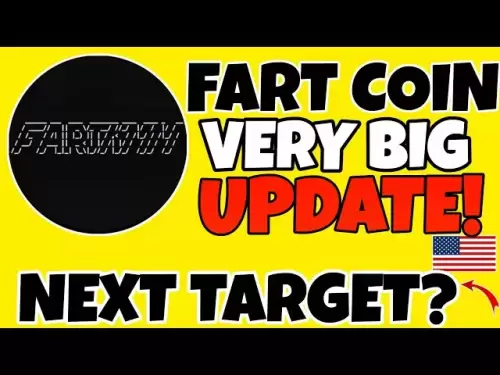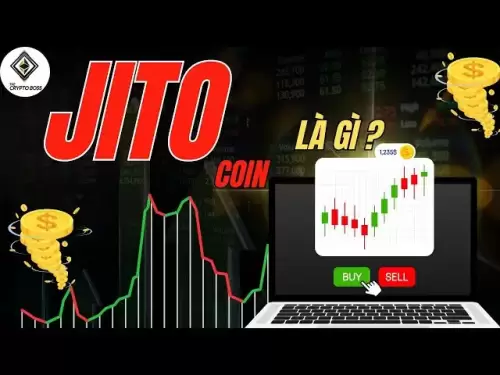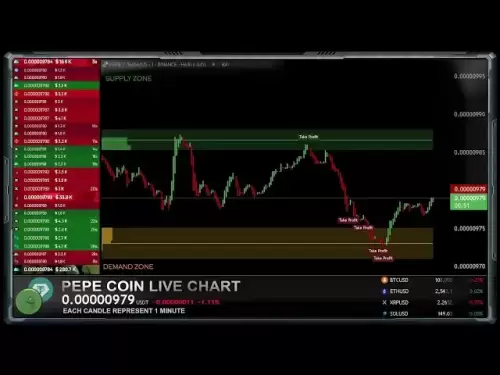-
 Bitcoin
Bitcoin $107,810.8710
-1.45% -
 Ethereum
Ethereum $2,531.4386
-1.75% -
 Tether USDt
Tether USDt $1.0000
-0.03% -
 XRP
XRP $2.2542
-0.99% -
 BNB
BNB $659.1350
-0.50% -
 Solana
Solana $148.5456
-2.40% -
 USDC
USDC $0.9999
-0.02% -
 TRON
TRON $0.2868
-0.44% -
 Dogecoin
Dogecoin $0.1666
-3.65% -
 Cardano
Cardano $0.5751
-2.36% -
 Hyperliquid
Hyperliquid $37.6845
-5.51% -
 Bitcoin Cash
Bitcoin Cash $494.9448
-0.65% -
 Sui
Sui $2.8396
-3.31% -
 Chainlink
Chainlink $13.2423
-2.59% -
 UNUS SED LEO
UNUS SED LEO $9.0482
0.02% -
 Stellar
Stellar $0.2467
-2.44% -
 Avalanche
Avalanche $17.8165
-3.63% -
 Shiba Inu
Shiba Inu $0.0...01158
-2.41% -
 Toncoin
Toncoin $2.7397
-3.42% -
 Hedera
Hedera $0.1560
-2.73% -
 Litecoin
Litecoin $85.8559
-2.34% -
 Monero
Monero $315.3710
-2.30% -
 Dai
Dai $1.0001
0.00% -
 Polkadot
Polkadot $3.3443
-2.03% -
 Ethena USDe
Ethena USDe $1.0001
0.01% -
 Bitget Token
Bitget Token $4.2888
-3.73% -
 Uniswap
Uniswap $7.3388
-1.57% -
 Aave
Aave $278.2986
-3.05% -
 Pepe
Pepe $0.0...09807
-3.67% -
 Pi
Pi $0.4563
-2.39%
How to choose an exchange for DOGE trading?
When choosing an exchange for DOGE trading, consider reputation, security, fees, user interface, trading pairs, and customer support to ensure a reliable and efficient trading experience.
Apr 22, 2025 at 05:29 am

Choosing the right exchange for DOGE trading is crucial for any cryptocurrency enthusiast looking to engage with Dogecoin. With numerous platforms available, it's important to consider various factors that can impact your trading experience and security. In this article, we will explore the key aspects to consider when selecting an exchange for DOGE trading.
Understanding the Basics of DOGE Trading
Before diving into the specifics of choosing an exchange, it's essential to understand what DOGE trading entails. Dogecoin, often referred to as DOGE, is a cryptocurrency that was created as a joke but has gained significant popularity over time. Trading DOGE involves buying and selling the cryptocurrency on exchanges, with the goal of making a profit from the price fluctuations.
When considering an exchange for DOGE trading, you should look at the platform's reputation, security measures, fees, user interface, and available trading pairs. These factors will significantly influence your trading experience and potential success.
Evaluating Exchange Reputation and Security
The reputation of an exchange is a critical factor to consider. A well-established exchange with a good track record is more likely to provide a reliable and secure trading environment. Research the exchange's history, read user reviews, and check for any reported security breaches or issues.
Security is paramount in the world of cryptocurrency trading. Look for exchanges that offer robust security measures such as two-factor authentication (2FA), cold storage for funds, and encryption of user data. Additionally, check if the exchange has insurance coverage for user funds, which can provide an extra layer of protection against potential hacks.
Analyzing Fees and Costs
Fees can significantly impact your profitability when trading DOGE. Different exchanges have varying fee structures, including trading fees, withdrawal fees, and deposit fees. It's important to understand the fee structure of each exchange and calculate how it will affect your trading strategy.
- Look for exchanges that offer competitive trading fees. Some platforms offer lower fees for high-volume traders or provide discounts for using their native tokens.
- Consider the withdrawal fees, as these can add up over time, especially if you frequently move your DOGE to a personal wallet.
- Be aware of any hidden fees, such as inactivity fees or fees for certain types of transactions.
Assessing User Interface and Experience
The user interface (UI) and overall user experience (UX) of an exchange can greatly influence your trading efficiency and satisfaction. A user-friendly platform with an intuitive interface can make it easier to navigate and execute trades quickly.
- Check if the exchange offers a demo or practice account, which can help you get familiar with the platform before risking real funds.
- Evaluate the speed and responsiveness of the platform, as delays can be costly in the fast-paced world of cryptocurrency trading.
- Consider the availability of mobile apps, which can be essential for traders who need to monitor and execute trades on the go.
Exploring Trading Pairs and Liquidity
The availability of trading pairs is another important consideration when choosing an exchange for DOGE trading. A good exchange should offer a variety of trading pairs, including DOGE paired with major cryptocurrencies like BTC, ETH, and stablecoins like USDT.
- Liquidity is crucial for ensuring that you can buy and sell DOGE quickly and at favorable prices. Look for exchanges with high trading volumes and tight bid-ask spreads.
- Check if the exchange offers advanced trading features such as margin trading, futures, or options, which can be useful for more experienced traders looking to leverage their positions.
Customer Support and Community
Finally, consider the level of customer support and the community surrounding the exchange. Good customer support can be invaluable when you encounter issues or have questions about your account or trades.
- Check if the exchange offers multiple support channels, such as live chat, email, and phone support.
- Look for an active community on social media and forums, where you can get insights and advice from other traders.
- Consider the exchange's responsiveness to customer feedback and issues, as this can indicate their commitment to user satisfaction.
Frequently Asked Questions
Q: Can I trade DOGE on multiple exchanges simultaneously?
A: Yes, you can trade DOGE on multiple exchanges simultaneously. However, managing multiple accounts can be complex, so it's important to keep track of your trades and funds across different platforms.
Q: Are there any exchanges that specialize in DOGE trading?
A: While there are no exchanges that exclusively specialize in DOGE trading, some platforms like Binance and Coinbase offer robust DOGE trading options and are popular among DOGE enthusiasts.
Q: How can I transfer DOGE from an exchange to a personal wallet?
A: To transfer DOGE from an exchange to a personal wallet, follow these steps:
- Log into your exchange account and navigate to the withdrawal section.
- Select DOGE as the cryptocurrency you want to withdraw.
- Enter the DOGE address of your personal wallet and the amount you wish to transfer.
- Confirm the transaction and wait for the DOGE to arrive in your personal wallet. The transfer time can vary depending on the network congestion and the exchange's processing speed.
Q: What should I do if I encounter a problem with my DOGE trade on an exchange?
A: If you encounter a problem with your DOGE trade, first check the exchange's FAQ or help section for common issues and solutions. If the problem persists, contact customer support through the available channels, such as live chat, email, or phone, and provide detailed information about the issue. Keep records of your interactions with customer support for reference.
Disclaimer:info@kdj.com
The information provided is not trading advice. kdj.com does not assume any responsibility for any investments made based on the information provided in this article. Cryptocurrencies are highly volatile and it is highly recommended that you invest with caution after thorough research!
If you believe that the content used on this website infringes your copyright, please contact us immediately (info@kdj.com) and we will delete it promptly.
- XLM Price Prediction: Is Stellar Ready for a Breakout?
- 2025-07-08 19:10:13
- Memecoin Mania: V2EX, Pump.fun, and the Wild West of Crypto
- 2025-07-08 19:50:12
- Dogecoin, Shiba Inu, Little Pepe: Meme Coin Mania or Future Finance?
- 2025-07-08 19:50:12
- Iron Maiden's 50th Anniversary: A Royal Mint Tribute in Metal!
- 2025-07-08 19:55:12
- DAI Stablecoin: Your Ace in the Hole for Online Casinos and Gambling Sites?
- 2025-07-08 19:55:12
- Token Investment in Q4 2025: Riding the Little Pepe Wave to 100x Gains?
- 2025-07-08 20:00:11
Related knowledge

How to customize USDT TRC20 mining fees? Flexible adjustment tutorial
Jun 13,2025 at 01:42am
Understanding USDT TRC20 Mining FeesMining fees on the TRON (TRC20) network are essential for processing transactions. Unlike Bitcoin or Ethereum, where miners directly validate transactions, TRON uses a delegated proof-of-stake (DPoS) mechanism. However, users still need to pay bandwidth and energy fees, which are collectively referred to as 'mining fe...

USDT TRC20 transaction is stuck? Solution summary
Jun 14,2025 at 11:15pm
Understanding USDT TRC20 TransactionsWhen users mention that a USDT TRC20 transaction is stuck, they typically refer to a situation where the transfer of Tether (USDT) on the TRON blockchain has not been confirmed for an extended period. This issue may arise due to various reasons such as network congestion, insufficient transaction fees, or wallet-rela...

How to cancel USDT TRC20 unconfirmed transactions? Operation guide
Jun 13,2025 at 11:01pm
Understanding USDT TRC20 Unconfirmed TransactionsWhen dealing with USDT TRC20 transactions, it’s crucial to understand what an unconfirmed transaction means. An unconfirmed transaction is one that has been broadcasted to the blockchain network but hasn’t yet been included in a block. This typically occurs due to low transaction fees or network congestio...

How to check USDT TRC20 balance? Introduction to multiple query methods
Jun 21,2025 at 02:42am
Understanding USDT TRC20 and Its ImportanceUSDT (Tether) is one of the most widely used stablecoins in the cryptocurrency market. It exists on multiple blockchain networks, including TRC20, which operates on the Tron (TRX) network. Checking your USDT TRC20 balance accurately is crucial for users who hold or transact with this asset. Whether you're sendi...

What to do if USDT TRC20 transfers are congested? Speed up trading skills
Jun 13,2025 at 09:56am
Understanding USDT TRC20 Transfer CongestionWhen transferring USDT TRC20, users may occasionally experience delays or congestion. This typically occurs due to network overload on the TRON blockchain, which hosts the TRC20 version of Tether. Unlike the ERC20 variant (which runs on Ethereum), TRC20 transactions are generally faster and cheaper, but during...

The relationship between USDT TRC20 and TRON chain: technical background analysis
Jun 12,2025 at 01:28pm
What is USDT TRC20?USDT TRC20 refers to the Tether (USDT) token issued on the TRON blockchain using the TRC-20 standard. Unlike the more commonly known ERC-20 version of USDT (which runs on Ethereum), the TRC-20 variant leverages the TRON network's infrastructure for faster and cheaper transactions. The emergence of this version came as part of Tether’s...

How to customize USDT TRC20 mining fees? Flexible adjustment tutorial
Jun 13,2025 at 01:42am
Understanding USDT TRC20 Mining FeesMining fees on the TRON (TRC20) network are essential for processing transactions. Unlike Bitcoin or Ethereum, where miners directly validate transactions, TRON uses a delegated proof-of-stake (DPoS) mechanism. However, users still need to pay bandwidth and energy fees, which are collectively referred to as 'mining fe...

USDT TRC20 transaction is stuck? Solution summary
Jun 14,2025 at 11:15pm
Understanding USDT TRC20 TransactionsWhen users mention that a USDT TRC20 transaction is stuck, they typically refer to a situation where the transfer of Tether (USDT) on the TRON blockchain has not been confirmed for an extended period. This issue may arise due to various reasons such as network congestion, insufficient transaction fees, or wallet-rela...

How to cancel USDT TRC20 unconfirmed transactions? Operation guide
Jun 13,2025 at 11:01pm
Understanding USDT TRC20 Unconfirmed TransactionsWhen dealing with USDT TRC20 transactions, it’s crucial to understand what an unconfirmed transaction means. An unconfirmed transaction is one that has been broadcasted to the blockchain network but hasn’t yet been included in a block. This typically occurs due to low transaction fees or network congestio...

How to check USDT TRC20 balance? Introduction to multiple query methods
Jun 21,2025 at 02:42am
Understanding USDT TRC20 and Its ImportanceUSDT (Tether) is one of the most widely used stablecoins in the cryptocurrency market. It exists on multiple blockchain networks, including TRC20, which operates on the Tron (TRX) network. Checking your USDT TRC20 balance accurately is crucial for users who hold or transact with this asset. Whether you're sendi...

What to do if USDT TRC20 transfers are congested? Speed up trading skills
Jun 13,2025 at 09:56am
Understanding USDT TRC20 Transfer CongestionWhen transferring USDT TRC20, users may occasionally experience delays or congestion. This typically occurs due to network overload on the TRON blockchain, which hosts the TRC20 version of Tether. Unlike the ERC20 variant (which runs on Ethereum), TRC20 transactions are generally faster and cheaper, but during...

The relationship between USDT TRC20 and TRON chain: technical background analysis
Jun 12,2025 at 01:28pm
What is USDT TRC20?USDT TRC20 refers to the Tether (USDT) token issued on the TRON blockchain using the TRC-20 standard. Unlike the more commonly known ERC-20 version of USDT (which runs on Ethereum), the TRC-20 variant leverages the TRON network's infrastructure for faster and cheaper transactions. The emergence of this version came as part of Tether’s...
See all articles

























































































